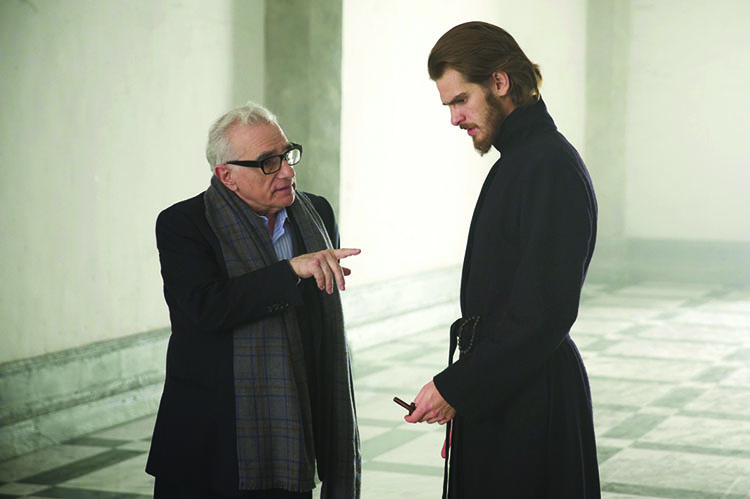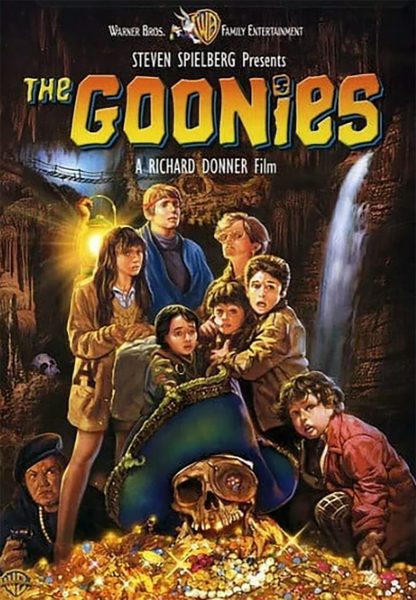Missionary work abroad is often misinformed charity
Voluntourism is a modern day form of colonialism
More stories from Lara Bockenstedt
Photo by SUBMITTED
A still of Andrew Garfield and Martin Scorcese while filming for one of the early scenes of “Silence.” Garfield’s character is a Catholic missionary who travels to Japan to find a lost priest and spread Catholicism.
I recently walked out of the theater from seeing the film “Silence” wondering about the modern lessons it nudges toward its audience. It’s Martin Scorcese’s 28-year project, and an in-depth meditation upon missionary work telling the story of young priests trying to spread Christianity among a culture they are unfamiliar with.
Five-hundred years after this story supposedly takes place, and we are still making the same egregious mistakes.
I realize that for many, being a missionary is a role they hold dear to their heart as a calling and source of pride. While it does have some positive merits and is an ethical work, it doesn’t, perhaps, embody the ethics that will make long-term positive changes.
Similar to Andrew Garfield’s character in Silence, many upper-middle class and upper class folks spend money on their missionary work in another country. They’re told they will do some construction work likely, or teach basic classes. Mostly, they are there to spread the messages of their religion — meant to be a beacon of hope, one that locals will hold long after the volunteers leave.
However, many of these volunteers aren’t trained for the work they’re meant to do. The vast quantity of money they have spent on plane tickets and lodging could be better spent hiring locals to do the work themselves.
Doctors, engineers and professional translators among other professions may have a place in enacting change. Those who can’t speak another language fluently, lack knowledge of the pre-existing culture and cannot provide medical care/construction expertise? Less so.
In satire, the work is called voluntourism. At worst, it only teaches internal lessons; that the volunteers should be thankful for the blessings they already have, and that the world is in dire need of their gilded aid.
Even worse, it cements the idea that colonialism is necessary.
MIT anthropology professors published an article titled “The Appeal of Experience: The Dismay of Images: Cultural Appropriations of Suffering in Our Times.” In it, they wrote “It is important to avoid essentializing, naturalizing, or sentimentalizing suffering.”
When a missionary group uses their cause as a “moral” endeavor, they put themselves in a position of power over those they are helping they wrote. They judge the quantity of suffering occurring, while simultaneously suggesting that they know how to fix it.
“The Voluntourist’s Dilemma,” an article in the New York Times written by Jacob Kushner, further questions the long-term effects of voluntourism. Kushner found research in South Africa suggesting that “orphan tourism” has created a business for orphanages who will purposefully create dire situations in order raise more money from tourists.
He cited a 2008 study which found that volunteer tourists spend a collective $2 billion annually for these volunteering vacations. The continuous influx and departures of volunteers has been linked to attachment disorders in children at the orphanages, too, he wrote.
Furthermore, when it comes to disseminating hope by way of religion, spreading ideology and religion is oftentimes taking part in replacing a culture and religion that already existed.
Cultural extinction was added to the UN’s list of intangible heritage in 2012. UNESCO published that as younger generations become increasingly influenced by a global world, ancient traditions evaporate.
It is not in our place to flagrantly ignore a pre-existing culture and customs in order to spread an ideology and religion we believe in. If we wish to be charitable on a global-level, well-researched donations may be the best route. Otherwise, our missionary work and voluntourism should be left to cultures we’re familiar with.
As Garfield’s character was told in “Silence,” “The price for your glory is their suffering.”











